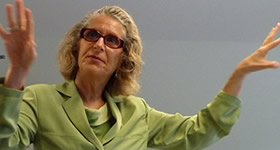[Another old Simone Uncensored… Before 2010…]
Who taught us to be secretive?
In business, we keep secrets from employees and customers. We keep secrets from donors and volunteers. Why?
Transparency is good. Honesty and truth build trust. Candor and communications nurture understanding and ownership.
Sure, you have to be conscientious and wise with transparency. You don’t violate the privacy of clients or employees. You probably don’t discuss litigation. You make judgments. But the default is, too often, “keep it private,” “don’t talk about it,” “there’s no need for them to know.”
Lack of transparency does a lot of damage, unnecessary damage when it’s so easy to be transparent.
Why not share your budget and financial report and financial situation with your donors, volunteers, and employees. Explain what’s happening and why. Explain what you are doing about the situation.
More transparency reduces the anxiety of not knowing. More transparency builds understanding and support. More transparency may generate useful insights and ideas – and more transparency with donors can certainly generate more gifts.
Maybe what I perceive as a lack of transparency could be lack of awareness and poor business practice on the part of nonprofits. Just the other day, I was trying to find the board members of a charity. But no list on the agency’s website. How silly. According to a recent study by GuideStar (“The State of Nonprofit Transparency, 2008: Voluntary Disclosure Practices”), only 73% of the studied charities post a board list online.
Another example: Your audited financial statement is a public document and should be readily available for anyone. Why make people ask? Just make it available, like on your website. But the GuideStar study said that only 13% of the studied charities post the audit online. And only 3% noted that the audit is available off line.
Transparency is good. Basic transparency about the fundamentals is essential; not to do so is just plain stupid. And more transparency is really really good and really builds trust, understanding, and ownership. And trust, understanding, and ownership bring many good things.

